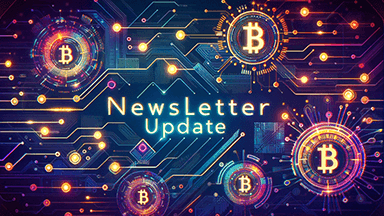💫 About
What is this network?
Kwil is a decentralized database framework that enables the deployment of relational databases as stand-alone Byzantine fault-tolerant networks. It extends the functionality of traditional relational databases by providing a layer on top of existing engines that enforce rules necessary for building secure, permissionless data stores. This allows developers to create and manage permissionless, structured data schemas on a decentralized network. Kwil's network data is replicated across a sufficient number of nodes to guarantee that at any point in time, there is an accurate and available copy of a database's active state.
How can I mine tokens?
Currently, there is no Kwil token, and the team does not have plans to release a token in the near term. All payment for Kwil is done through a Testnet token. Therefore, the concept of mining tokens does not apply to the Kwil network.
Any geographical restrictions?
Kwil's decentralized database networks are among the technical innovations that are shifting the Web3 limit up and to the left. Networks on Kwil are separate, homogenous, Byzantine fault-tolerant database networks that use SQL to store and retrieve data. Projects and platforms can fine-tune their nodes to configure where exactly along the expanded Web3 limit they need to be. For example, a DID project may have stringent data compliance requirements regarding who and where user data is stored. With Kwil, they can create a strict node operator whitelist, enforcing that only certain parties can participate and validate the network.
How can I optimize my mining rewards?
As mentioned earlier, the concept of mining tokens does not apply to the Kwil network since there is no Kwil token. Therefore, the question of optimizing mining rewards is not applicable in this context.
How can I use the network?
To use the Kwil network, you can quickly create and deploy a database on the network, then allowing communities to permissionlessly write and read data so long as such actions conform to the predefined rules. Kwil databases are easy to use–simply define and deploy your schema, and then you can easily submit and query data via the Kwil API.
Who governs this network?
Kwil is a decentralized network, meaning no single person or group controls the blockchain. Everyone in the world has equal access to send commands. The data stored on the blockchain is immutable and tamperproof. All transactions processed over time are recorded in a continuously growing ledger.
Funding
KwilDB protocol includes a community-owned pool that enables communities to fund their validators and pay data/compute debts. These can exist on any chain, and any Data Set can have multiple funding pools. When creating a funding pool, the creator is able to specify the chain, token, and validator that the pool is tied to. This enables users to pay into the Kwil network with any ERC207 equivalent token (as long as the validator accepts that currency) .
📣 Project updates
Loading updates from Kwill...
📣 News mentions
Loading news with Kwill mentions...
🌟 Related projects
Decentralized cloud database enabling tamper-proof data storage and access
Privacy-centric data storage solution fostering easier web3 integration for all
Public, key-enabled decentralized data network for secure Web3 apps
Revolutionizing analytics with AI SQL, OLTP/OLAP, & zk-proof tech




